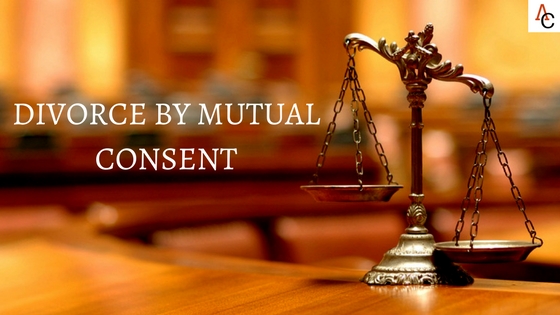Aapka Consultant Judgment Series- In this series, we are providing case analysis of Landmark Judgments of Hon’ble Supreme Court of India.
Anil Kumar Jain v. Maya Jain
AIR 2010 SC 229: (2009) 10 SCC 415
JUDGES: Altamas Kabir and Cyriac Joseph
Date of Decision: – 01-09-2009
FACTS;-
Anil Kumar Jain (Appellant) and Maya Jain (Respondent) filed a joint petition for divorce by mutual consent under Section 13B of Hindu Marriage Act, 1955 in the trial court. But after the expiry of 6 months, wife withdrew her consent for the petition, so court dismissed their joint petition. In the appeal before the High Court also, the respondent wife expressed her desire to live separately from the appellant husband but on the contrary she did not want a decree of dissolution of marriage to be passed, hence the same was also dismissed by a single Judge. Aggrieved by the order of the High Court, appellant filed a special leave petition.
ISSUE;-
Whether a decree can be passed in the petition of divorce by mutual consent under Section 13B of Hindu Marriage Act, 1955 when one of the parties to the petition withdraws his/her consent to such decree prior to the passing of such decree?
JUDGMENT;-
The Hon’ble Supreme Court can in special circumstances pass appropriate orders to do justice to the parties in a given fact situation by invoking its powers under Article 142 of the Constitution, but in normal circumstances the provisions of the statute have to be given effect to. The two propositions which can be discussed here is that, firstly, that though irretrievable breakdown of marriage is not mentioned as a ground under Section 13 or 13B of Hindu Marriage Act, 1955 for granting divorce but the said doctrine can be applied by the Supreme Court by exercising its extra-ordinary powers under Article 142 of the Constitution of India and can grant relief to the parties even without waiting for the six months period mentioned under Section 13B of the said act. This power is limited to the Supreme Court and neither the High Court not the Civil Court can pass orders before the six months’ time period.
Secondly, that the Supreme Court can convert a proceeding under Section 13 to one under Section 13B of Hindu Marriage Act, 1955 by exercising its extra-ordinary powers. The other courts are not competent to pass a decree in a petition for divorce by mutual consent if one of the parties withdraws his/her consent from it. By law, the consent, which the parties gave at the time of filing the petition for divorce by mutual consent, subsists till the later stage when the petition comes up for orders and a decree is to be passed to dispose of the petition and it is the Supreme Court, which, by exercising its extra-ordinary powers under Article 142 of the Constitution of India, can pass orders to do complete justice to the parties.
The Court has followed the decision of Smt. Sureshta Devi v. Om Prakash [(1991) 2 SCC 25] wherein the Court held that the consent given by the parties at the time of filing the petition for divorce by mutual consent has to subsist till a decree is passed on the petition.
In the instant case, the parties had been living separately for seven years and as a part of an agreement, the appellant transferred valuable property rights in favour of the respondent, following which she withdrew consent for divorce. This was a fit case where Article 142 could be exercised and the marriage stood dissolved from the date of this judgment.
HELD;-
The Supreme Court held that the consent given by the parties at the time of filing of the joint petition for divorce by mutual consent has to subsist till the second stage when the petition comes up for orders and a decree for divorce is finally passed and it is only the Supreme Court, which, in exercise of its extraordinary powers under Article 142 of the Constitution, can pass orders to do complete justice to the parties.
To Get Legal Opinion from Advocates/ Legal Experts, Please click here
To Get Legal Opinion from Retired Hon’ble Judges, Please click here












